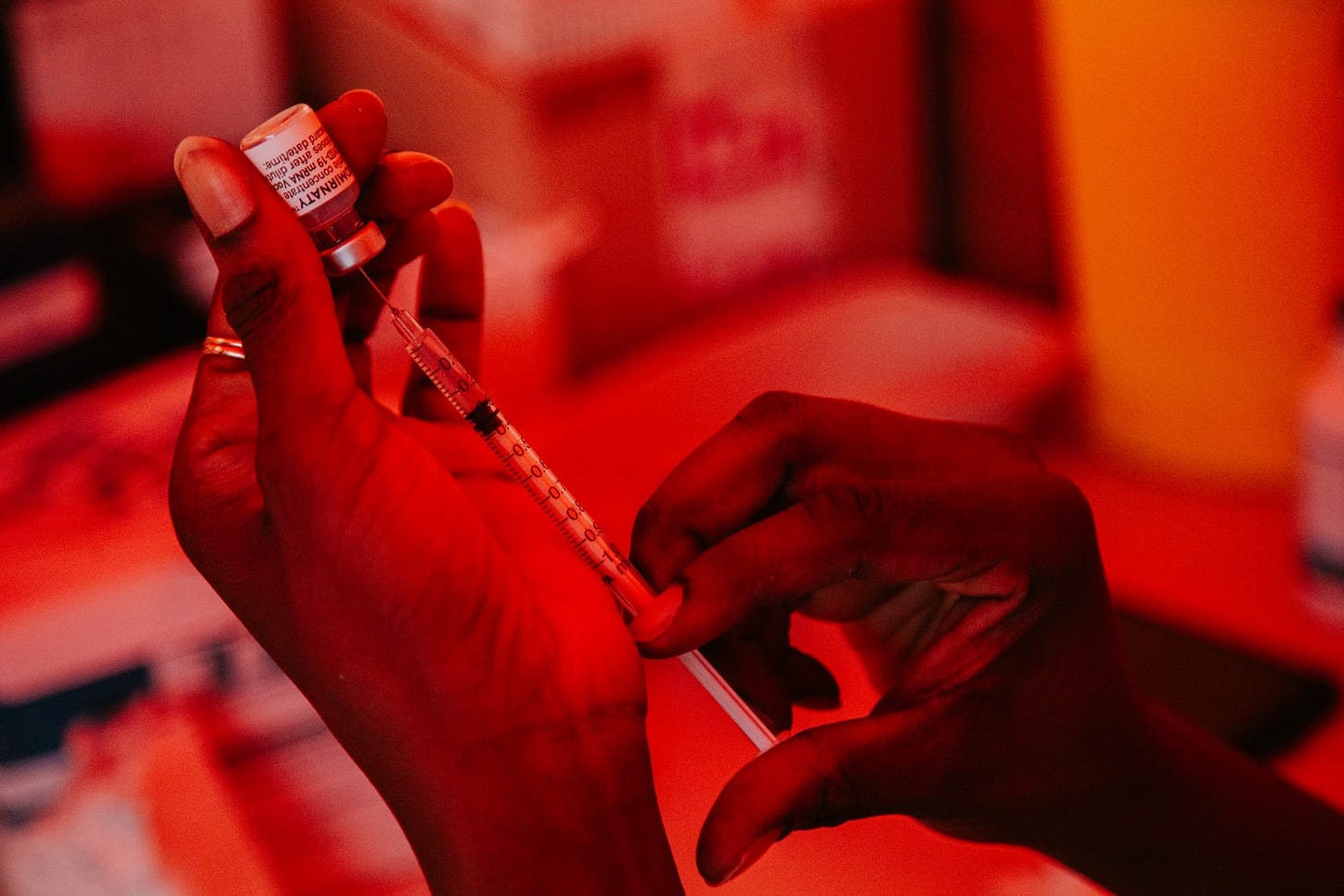Covid is here to stay
Protecting workers and communities means we must think beyond ourselves.
Abdullah Shihipar (@AShihipar), from the Narrative Projects & Policy Impact Initiative at the People, Place & Health Collective at Brown University, is writing a new public health column for The Nation. His analysis of the impact of public policy during the pandemic points out the obstacles faced by those tasked with protecting communities through work and messaging.
In “Covid Is Here To Stay. This is How We Should Respond.” Shihipar describes how we can collectively transform the pandemic into an endemic by reducing transmission and controlling outbreaks. This would include a bigger public policy response to deal with the Delta variant, like more masking and stay-at-home mandates. 😷
In OSHA Can Do Much More to Prevent Covid Transmission at Work, Shihipar explores the role of the Occupational Safety and Health Administration in regulating vaccination in the workplace with the Biden administration’s new mandate. If it’s expected to enforce vaccinations, the government must expand the agency and give it more power:
The Biden administration’s plan uses an agency meant to protect workers to put the burden of Covid safety on them. While getting vaccinated is a responsibility we all have to society, ensuring a safe workplace is a responsibility our employers have to us. If we all have to adapt to “learn to live with the virus,” so too should our workplaces.
Shihipar notes that in June, OSHA limited the federal national emergency temporary standard to include regulation for healthcare employees, excluding other workers who had only guidance for protection. Essential workers like meatpackers, farmworkers, grocery store workers, and line cooks have had some of the highest mortality rates.
📰 Featured on Workday
From In These Times, Sarah Lazare (@sarahlazare) and Maurizio Guerrero (@mauriziogro) report on the meaning of protections for domestic workers in the federal budget reconciliation bill:
…neither the initial proposed act, nor the version included in the Build Back Better package, will reform national labor law to undo key exclusions of domestic workers from protections. But supporters say the legislation would play an role in building the collective power of domestic workers by improving their pay and security, and by making it easier to organize them — something that is sorely needed.
From Michael Moore at St. Paul’s Union Advocate (@unionadvocate), members of Bakery Confectionary, Tobacco and Grain Millers Local 22 who work at Old Dutch warn that the conditions that inspired strikes at Nabisco and Frito Lay are here in Minnesota, too:
“We recently had over 50 members in our parking lot on a Saturday morning, their only day off of the week,” Local 22 President Wally Borgen said. “These members are angry because they’re working a lot of overtime, and they say the company doesn’t pay enough to recruit and retain workers.”
🎧 Listen: I was a wee ninth grader in high school when the Occupy Wall Street movement began in September 2011, so I really enjoyed the Belabored podcast’s series on the legacy of Occupy Wall Street. Here I am, ten years later, learning more and more about the ideas shaping our current moment. Part 2 is a conversation with labor scholar Ruth Milkman and Nastaran Mohit, the Organizing Director of the NewsGuild in New York.
📖 “When Wall Street Met Main Street”
On Saturday, November 13, the Minnesota History Center will be presenting the History Forum where Julia C. Ott will be speaking. Ott is an assistant professor of history at The New School for Social Research in New York City, and author of When Wall Street Met Main Street: The Quest for an Investors’ Democracy and Wealth Over Work: The Origins of Venture Capital, The Return of Inequality, and the Decline of Innovation.
“Over the course of the last forty years,” Ott has written, “the collective solutions that once nurtured the American middle class — including labor unions along with government and corporate-sponsored social provisions — drew increasing criticism for allegedly impeding the dynamic individualism of American capitalism. Government withdrew from social protection and provision. De-regulation and privatization swept across the domestic policy landscape. As a result, inequality increased. And the well-being of American households was yoked ever more tightly to increasingly unregulated financial markets. These ideas, policies, and outcomes — often labeled “neoliberalism” by scholars — account, in part, for both the insurgency of Bernie Sanders and the victory of Donald Trump.”
Buy in-person or online tickets here.
We can dream together. We are each other’s harvest.



